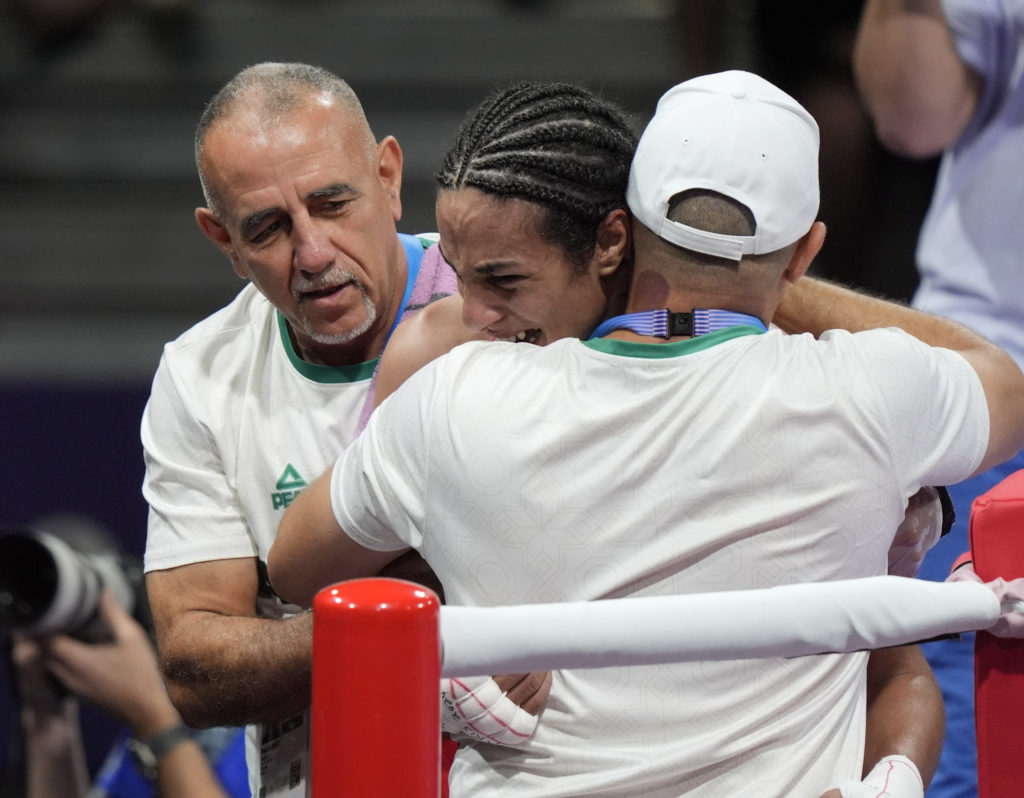Yes i have daughters and women folk.
When you put the battery in people’s back to judge and accost other people based on who looks enough like a woman it only puts a target on all of your backs.
All these same maga accounts Hardeep likes to post are the same ones that claimed michelle obama or Serena williams was a man, or that black women look masculine.
Think about who these cacs will be attacking if/when you tell them they are allowed to throw trannys out.
“The only men in the women’s restroom were the cops,” Kalaya Morton said.

www.advocate.com
It’s already happening, you might be next

Right! Black women are more likely to be accused of being trans even when they are CIS gendered.
Female athletes of color who don’t conform to typically Western ideals of femininity have historically faced disproportionate scrutiny when it comes to sex testing and false accusations that they are male or transgender, historians and anthropologists say.

www.pbs.org
For women athletes of color, outsized scrutiny over gender is nothing new, historians say
By —
Noreen Nasir
World Aug 4, 2024 6:52 PM EST
PARIS (AP) — Overcome with emotion, Algerian boxer Imane Khelif left the ring in tears after a resounding victory this weekend. Khelif has faced days of hateful comments and false accusations about her gender following her first fight against an Italian opponent who quit seconds into their bout.
"It's because she's African, because she's Algerian," 38-year-old Algerian fan Adel Mohammed said Saturday, when Khelif clinched an Olympic medal. "These comments are coming from white people … it's a kind of racism."
READ MORE: Who is Olympian Imane Khelif? An Algerian woman boxer is facing gender backlash
Female athletes of color have historically faced disproportionate scrutiny and discrimination when it comes to sex testing and false accusations that they are male or transgender, historians and anthropologists say.
Imane Khelif of Algeria reacts with her corner after defeating Anna Luca Hamori of Hungary during the Paris Olympics at North Paris Arena, Paris, France, Aug. 3, 2024. Photo by Katie Goodale/USA TODAY Sports via Reuters
Khelif and Taiwanese boxer Lin Yu-Ting, who
won her bout Sunday after similar abuse and questions about her gender, are the latest examples of women of color who have found themselves caught in the contentious debate around gender regulations and perceptions in sports.
More women from the Global South or developing countries are affected by sex testing in sports, said Payoshni Mitra, director of the Center for Sport and Human Rights, a human rights organization based in Switzerland. She has worked with dozens of female athletes across Asia and Africa to fight sex testing practices.
"Sport is very Eurocentric — the approach is not necessarily global," Mitra said. "We need to accept women in all their diversity. And we are not seeing that at this point."
"We need to accept women in all their diversity. And we are not seeing that at this point."
Mitra and other advocates and anthropologists note that international sporting federations don't tend to promote an understanding of diversity in sex and gender identity and that gender tests have often targeted female athletes of color who don't conform to typically Western, white ideals of femininity.
In 2009, after her 800-meter victory in the world championships, South African runner Caster Semenya was sidelined for 11 months because of track and field rules about hormone levels. She has spent years in her legal battle against requirements for her to suppress her natural testosterone to compete.
Semenya was identified as female at birth, raised as a girl and has been legally identified as female her entire life. She has one of a number of conditions known as differences in sex development, or DSDs, which cause
naturally high testosterone.
Caster Semenya of South Africa competes at the World Athletics Championships in London on Aug. 11, 2017. Photo by Toby Melville/Reuters
World Athletics, track and field's governing body, said Semenya's testosterone levels give her an athletic advantage comparable to a man competing in women's events and that rules are needed to address that. Critics of the rules — which were put in place in 2011 and have tightened over the years — have considered naturally high testosterone levels to be a genetic gift, comparing it to a basketball player's height or a swimmer's long arms.

 How old are you? Do you have daughters? womenfolk?
How old are you? Do you have daughters? womenfolk?





 Son, wtf are you talking about?! You posted an article with an obvious dyke, and even they typically look femme enough to be in the ladies room.
Son, wtf are you talking about?! You posted an article with an obvious dyke, and even they typically look femme enough to be in the ladies room. 
 I'm being nice allowing the ones who pass. FOH.
I'm being nice allowing the ones who pass. FOH.